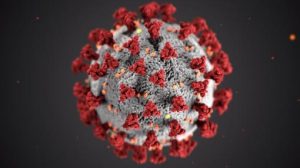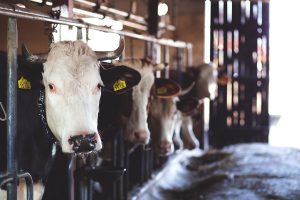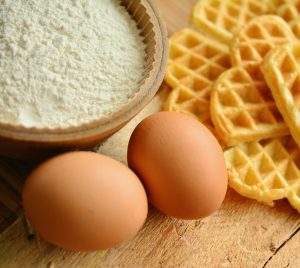If you are vegan and you don’t eat eggs, you probably have multiple reasons for that. However, a lot of omnivores would argue that a chicken lays the egg and it doesn’t get killed if you eat the egg. Therefore, you would simply waste food, right?
Well unfortunately, it’s not that easy. Yes, there are multiple reasons to avoid eggs, but let’s start from the beginning. For a new chicken to hatch, there is a rooster needed. The sperm can live up to 30 days in a hens’ body and therefore produce a couple of new chicks. But of course, what we need and want is to produce eggs and not all of those baby chicks are female.
Did you know that chickens are raised specifically as “layers” (female chickens who produce eggs) or “broilers” in which the sex doesn’t matter and these are raised purely for human consumption. They are specifically raised to be a certain weight as well, and fed differently so they can either be bigger (for consumption) or so that they produce more eggs. Therefore, layers will never be used for commercial meat consumption, and therefore, many are just killed after they stop producing eggs. We will go more into the very sad truth about these poor chickens in another blog post, but just know, the way these chickens are raised is horrible.
This brings us to the first and biggest problem we have with eggs:
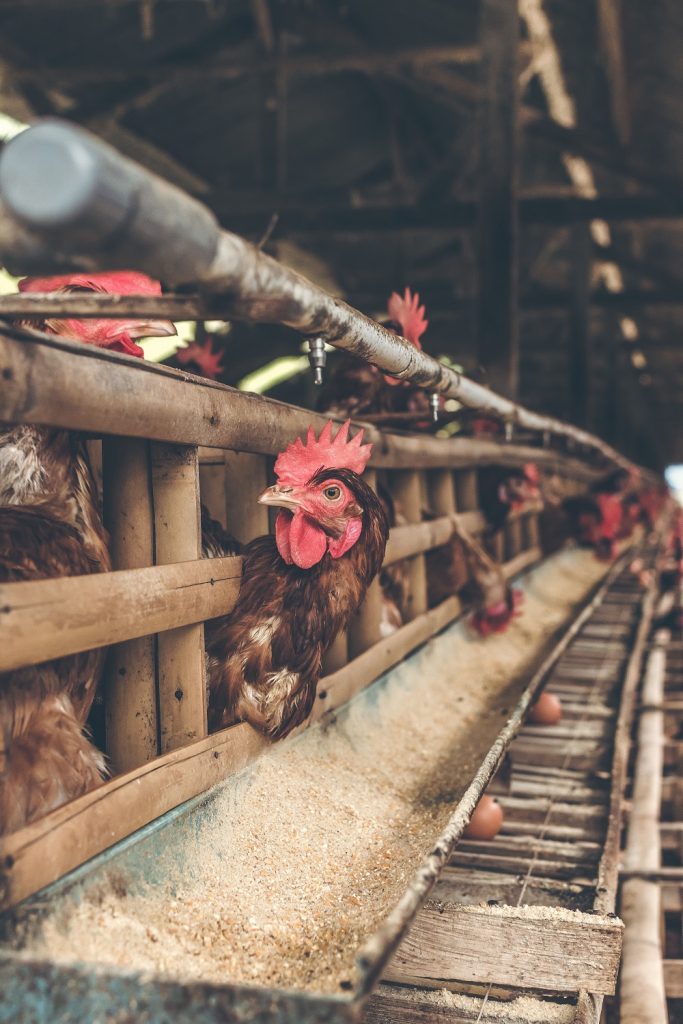
The killing of male chicks
Each year, millions of male chicks get killed by the egg industry because it would cost too much money to waste food and water on chicks that don’t even lay eggs and are, therefore, useless. As stated before, in the egg industry, only females are needed because they are “layers.” This means that any male chicks are instantly killed by spine snapping machines, through asphyxiation by carbon dioxide or those chicks get killed by being shredded in a grinder. This is not a humane way of killing. It is a business and if you watch some footage, it’s as cruel as it gets. Some farms now use electrocution because it’s cheaper, but it’s still equally cruel.
Useless hens
Of course, a hen gets older and with 250 eggs per year, she did a great job in her first two — three years (even though most chickens in the wild only produce around 20 to 30 eggs PER YEAR!) But after that, production slows down, and she doesn’t meet the egg laying standards of the industry anymore. Many birds don’t even make it that far due the living conditions in battery, cage and free-range farms. So, what to do with that hen? Slaughter her of course. She does not get sold to commercial meat industries for human consumption, because of how she was genetically “designed” to produce eggs, which does not meet the standards for how the broilers are genetically “designed. Some of her meat ends up in dog or cat food, but most of it gets grinded because layer hens, again, are usually not made for human consumption.
The free-range lie
Sure, free-range sounds amazing and if we can choose, we usually pick those eggs. But in most countries there are laws that define those free-range labels and it’s pretty sickening to read and understand, that free-range has most of the time nothing to do with happy hens in grass-fields. In many countries, the law is that they need “access to the outdoors” which for some companies means putting a tiny window flap for them to go outside, that they likely won’t even find. “Cage-free” legit only means that they aren’t stuffed in cages. That doesn’t mean they have fresh air. It doesn’t mean they still are piled on top of each other with no room to move around. It just means they aren’t locked in a cage. There is no real difference between those labeled as free-range and cage/battery eggs. Understand that those hens serve only one purpose: to lay eggs. They get killed after their time is served for our pleasure.
The saddest thing right there is, that hens can live up to 8-10 years, sometimes even longer. But after 2-3 years, they get killed, if they even make it that long. It’s been proven so many times that chicken feel emotions, that they can be emphatic and are highly intelligent. But let’s just exploit those animals. Because that’s why they are here, right?

The health-factor
Eggs are healthy: high in protein and good fats and overall, good for you. This is the common understanding of eggs. Let’s break it down and investigate that a bit. An egg consists of about 70% fat, a big part of which is saturated. You can google what that means but in short, it leads to higher cholesterol which increases the risk factor of heart disease and diabetes. The amount of cholesterol is pretry insane: 213 milligrams. We as humans already naturally produce it and we don’t need to add so much extra in our diets. In fact, we really shouldn’t eat any if possible.
Let’s move on to the protein. Yes, protein is good and needed but in eggs, it’s 100% animal protein which is a common source of allergies in infants, children and adults. Since it’s a lot of protein, it can be a burden on your liver, kidneys and metabolism. The sulfur-containing amino acid methionin in the egg whites is also associated with heart attacks, strokes Alzheimer’s and depression. And furthermore, the sulfur can lead to cancerous tumors. Doesn’t sound too good right? If you don’t believe that, you can google it or read more about on in our sources section. Instead of animal protein, which we truly don’t need as humans, plant protein is healthier, has a stronger affect on our bodies, and we digest it easier than animal protein.
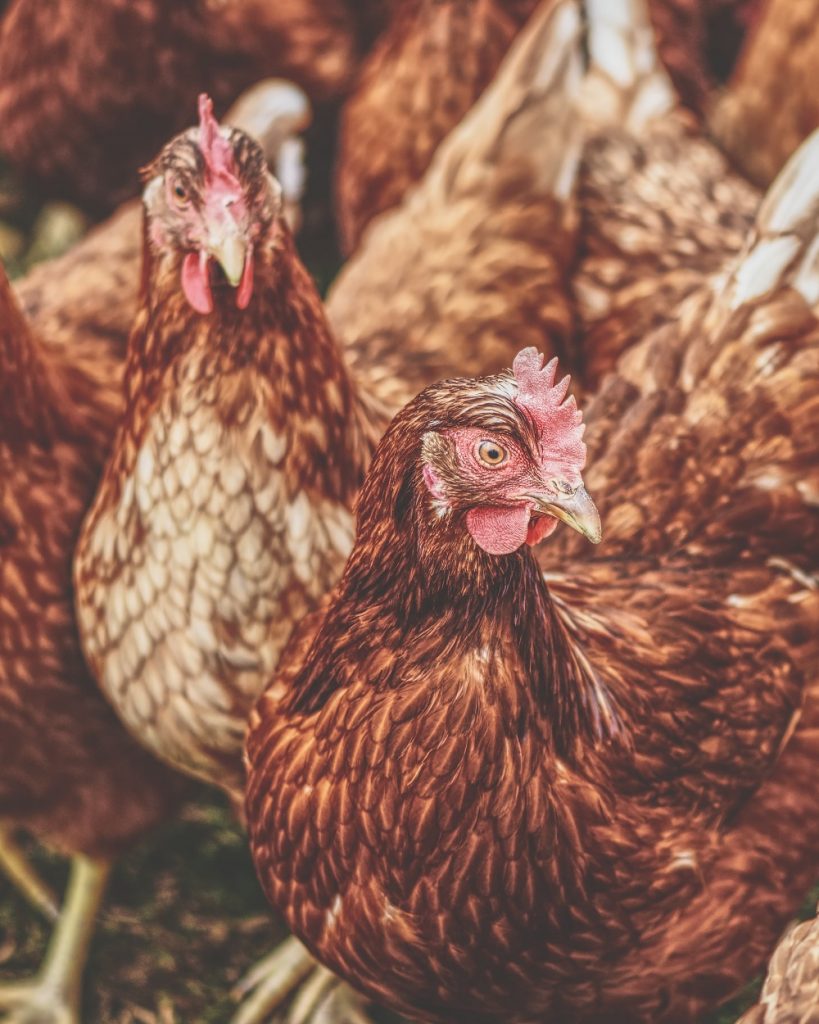
Salmonella, antibiotics and more
Eggs are not always good and can make you sick pretty fast when you eat bad eggs. Since you are basically eating something that went through the chicken already, this means that an egg can contain toxins, herbicides and pesticides. And pretty much anything else the hen might have eaten. Now, you are putting that into your body.
Salmonella is also a serious issue since it can lead to cramps, diarrhea, nausea, vomiting and fever. Older people and people with weaker immune systems can die from Salmonella poisoning.
To keep hens as healthy as possible in a hostile cage environment sleeping and sitting in their poop all day, they are given antibiotics which also end up in the egg. Sure, we don’t want that and we hear every few weeks about a problem with eggs containing antibiotics. Of course, there is the whole problem with resistant bacteria, which we breed in environments like that. Great, isn’t it?
You can read much more about why eggs and the chicken industry should be avoided. Sure, it is hard but for your own kitchen there are great egg-replacements and you can find some of them here: Egg Substitutes
We will also soon be posting more about the difference and upbringing of Layers and Broilers so if you are interested in learning more about that, stay tuned.
We hope that you are more aware of the egg-industry now and maybe you will choose not to indulge in those things as much as you used to. You only have one body and you should treat it with love and care, as you should everyone and everything around you.
We hope you liked this post and please share your thoughts with us in the comments below.
Please share with your friends and family and make sure to tag us on Instagram @sproutedconsciousness.

